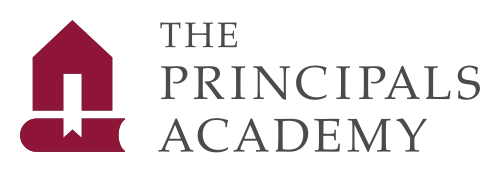I’m sure principals can also relate to the huge uncertainty surrounding the Olympics. You’re uncertain about the start of next term, about the safety of those in your care, about how many teachers you’ll have next week, about managing the vaccination of staff without major disruption, about how to repair our schools in terms of learning loss, about funding much needed resources, and perhaps, about how long you can keep personally accepting all this responsibility in these uncertain times. Yes, you can, you’re an indispensable community leader educating the champions of tomorrow.
Interestingly, if the IOC calls off the Olympics in the interests of Japanese health or the safety of athletes, they stand to lose billions. However, if individual countries withdraw unilaterally or cancellation occurs at the last moment because of the pandemic, then the local organizing body and the TV networks will be covered by insurance. The athletes, like the learners, are the ones personally affected. There’s lots to learn about how athletes have continued to train, despite the lack of competition. They have shown great perseverance and resilience in ensuring their mental and physical preparedness and in staying connected with teams and administrators.
Tokyo’s motto for this Olympics is ‘United by Emotion’ – the concept that those gathering in Tokyo, under unique conditions this time, and the billions watching across the globe will come together and understand that there is more that unites than divides them. Sport gives people the opportunity to connect through their emotions. What about your school’s motto? Do you use it to connect those who gather there each day with the purpose for which they gather? Do you use it to persuade every learner to expect more of themselves, to achieve their personal best and to help each other to do so, too?
Mega-events like the Olympics are ideal for maximizing learning. There are so many ready-made Olympic teaching and learning resources for all grades available online and so many heroes from Jesse Owens (1936) to Josia Thugwane (1996) and Wade van Niekerk (2016) to highlight, and 2021 local stars like Akane Simbine, Chad le Clos and Tatjana Schoenmaker to follow. Percy Tau and his U23 SA football team will play the opening match against the hosts, Japan.
The school I served was very sporting. Offhand, I can name ten of my learners who became Olympians; four are in the current squad. What amazes me is the long-term nature of an Olympian’s commitment. My past learner medal hopeful is Ashleigh Moolman-Pasio, a 35-year-old road race cyclist and former triathlete who has a degree in chemical engineering. She suffered a life-threatening head injury in a horse-riding accident in matric. She was in a coma for ten days in the July holidays, only came back to school for the final exam and still earned seven distinctions. Already a champion, wouldn’t you say?
The Olympic mascot, Miraitowa (‘mirai’-future; ‘towa’- eternity) and the Paralympic mascot, Someity (chosen to sound like ‘so mighty’) are graceful figures with big friendly eyes, pointy ears and superpowers. They will dominate our screens for weeks. Did you know that 80,000 tons of old electronic equipment, including six million phones, were melted down and used to make the gold, silver, and bronze medals? The medal design represents the daily striving for victory by the athletes, as well as their energy and that of the people who support them. That’s almost an exact depiction of what makes a successful learner. Tokyo 2020 (that’s still the official title) strives to engage young people by including surfing, skateboarding, karate and sport climbing and Paris 2024 will even include breaking – events highlighting competitive breakdancing.
I have shared these snippets about the Olympic Games because they provide the perfect backdrop for an end of term staff meeting, matric assembly or newsletter. Adapt the information to fit the occasion and use it to urge your staff and learners to get down to work faster, to aim higher and to finish the term stronger.
Till next time.
Paul (Coach/Mentor)
Principals Academy
24 June 2021
